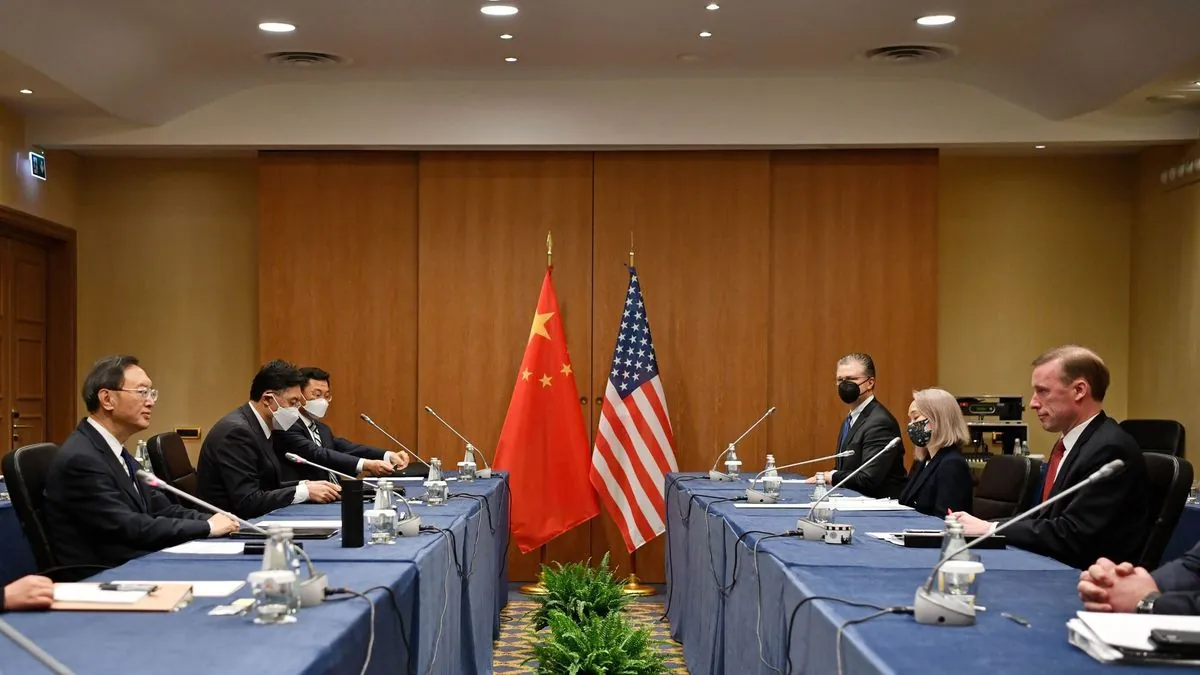Jake Sullivan's recent visit to China as U.S. National Security Advisor signifies a crucial step in rebuilding diplomatic channels between the world's two largest economies. This engagement comes at a time when U.S.-China relations have been strained by various geopolitical and economic factors.
Nicholas Burns, who has served as U.S. Ambassador to China for over two years, provided insights into the current state of bilateral relations. He emphasized the importance of maintaining open communication channels, even amidst intense competition:
"We now have connectivity with the Chinese leadership. That might sound ordinary to some people, but it's actually quite extraordinary and it's actually quite important."
The ambassador highlighted several key areas of focus in U.S.-China relations:
Taiwan: The U.S. maintains its One China policy, which has been a cornerstone of diplomatic relations since 1979. However, tensions have escalated since Nancy Pelosi's visit to Taiwan in August 2022.
Fentanyl crisis: Efforts are underway to curb the flow of precursor chemicals from China, which contribute to the opioid epidemic in the U.S. Recent progress includes China's listing of three precursor chemicals as prohibited for export.
Economic competition: The U.S. is implementing measures to protect its technological advantages, particularly in semiconductors and other critical industries.
The shift in U.S. policy towards China reflects changing global dynamics. Burns noted that China's increased assertiveness in regions like the South China Sea and its economic practices have necessitated a more competitive approach from the U.S.
The U.S. strategy now focuses on:
- Strengthening alliances in the Indo-Pacific region
- Addressing human rights concerns
- Competing in technological advancements
- Maintaining economic ties while protecting national interests
Despite the challenges, Burns emphasized the importance of avoiding conflict:
"The challenge is, can we compete and yet avoid the kind of conflict that would be catastrophic for the world? That's a major responsibility that we feel in the Biden administration."
The U.S. and China, as the world's two largest carbon emitters, also face the shared challenge of addressing climate change. This presents an opportunity for cooperation amidst competition.
As the relationship evolves, key issues such as trade policies, technological competition, and regional security will continue to shape U.S.-China interactions. The goal remains to manage competition responsibly while seeking areas of potential collaboration.
The complexity of this relationship is further underscored by the need to balance national security concerns with economic interdependence. As Burns noted, about 750,000 American jobs depend on trade with China, highlighting the intricate connections between the two nations.
As both countries navigate this new era of diplomacy, the focus remains on maintaining stability, protecting national interests, and finding common ground where possible. The ongoing dialogue between U.S. and Chinese officials represents a critical step in managing one of the world's most consequential bilateral relationships.
